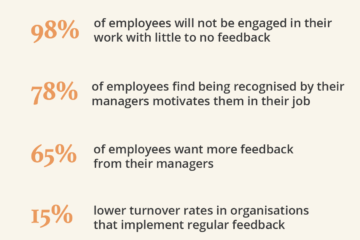Building a Strong Performance-Management System
Managing performance and making it an integral component of everyday operations in an organisation enables early identification of behaviour that needs to be developed. Constantly observing performance and addressing issues swiftly can help to remove the anticipated intensity and apprehension around forthcoming yearly performance reviews and empower employees to be confident in how they conduct themselves daily.

Emphasis on leading indicators
Focusing on monthly outputs or targets can leave it too late to influence the subsequent outcomes. Placing an emphasis on the behaviours and input that is required to achieve the desired results gives employees a definite pathway to succeed in their role.
Attainable targets that improve performance
Targets that are unreachable will cause employees to shy away from attempting to even hit them, and targets that aren’t challenging won’t drive high performance. Setting targets at an ideal level will motivate peak functioning of a business.
Transparency of employee contribution to overall company performance
Individual members of an organisation need to understand how their performance and meeting of targets contributes to the functioning of the company overall. This provides meaning for their work and helps them to see that they are part of a team that works together to achieve a common goal.
Keeping meetings and reviews constant
Regular reviews mean that issues can be identified and reconciled in an appropriate time frame. This minimises unnecessary losses and ensures that team members are consistently held accountable for their behaviour and work ethic.
Continuous improvement for leaders, not just employees
Great leaders do more than just coach their team members; they have the insight to understand that developing their own skills is essential too. As a leader, taking feedback from employees about an employees’ performance and decisions develops respect and can improve the perception of feedback given to employees.
Effectively tracking the performance of team members throughout the year rather than the typical annual or bi-annual review can be challenging. Ideally, increasing the frequency of capturing what team members are doing on a periodic or routine basis provides a greater balance of behavioural performance and timely indication of how team members are developing in their role.
Source: Carpi, R., Douglas, J., & Gascon, F. (2017, October 4). Performance management: Why keeping score is so important, and so hard. McKinsey & Company. https://www.mckinsey.com/business-functions/operations/our-insights/performance-management-why-keeping-score-is-so-important-and-so-hard
Ripple provides the means to capture behavioural performance and provide timely periodic feedback and coaching.
Want to learn more about Ripple?




0 Comments